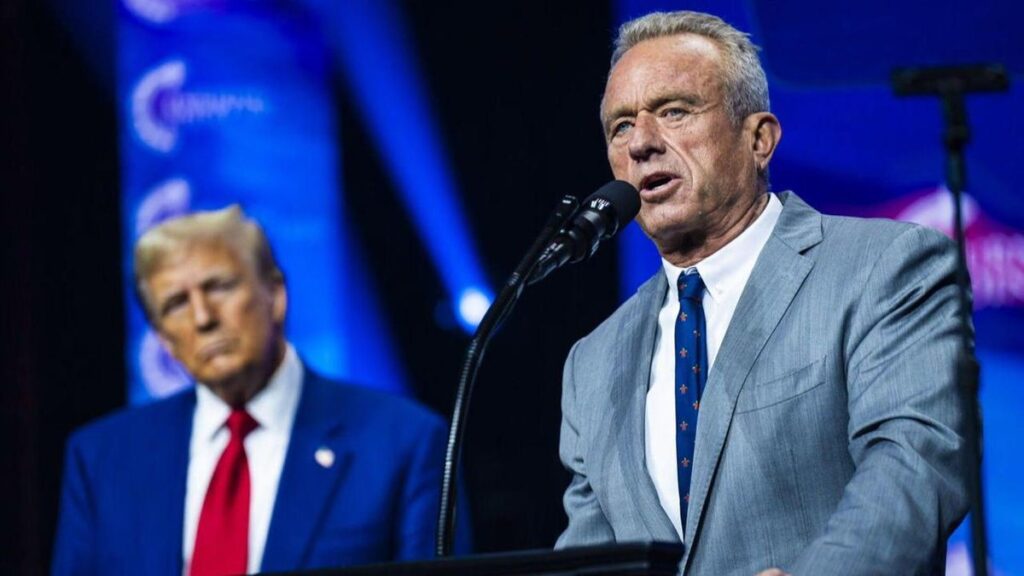The Potential Impact of Robert F. Kennedy Jr.’s Appointment on Healthcare Stocks
Robert F. Kennedy Jr.’s possible appointment as the next U.S. Secretary of Health has emerged as a pivotal topic, with far-reaching implications for the pharmaceutical industry. His views and previous statements have sparked both concern and opportunity among investors focused on healthcare stocks.
Healthcare Sector Under Pressure
The healthcare sector has recently faced significant challenges, with stocks associated with healthcare witnessing steep declines. This trend intensified notably after President Trump announced his nomination of Kennedy for the crucial health position. Kennedy’s long-standing opposition to vaccines and criticism of innovative drug developments, such as the latest obesity treatments, raise red flags for investors who prioritize stability in their portfolios.
Chugai Pharmaceutical’s Performance Amid Uncertainty
Chugai Pharmaceutical has reported record profits, boasting a 19% increase in consolidated net profit, totaling 387.3 billion yen (approximately $2.51 billion) for the fiscal year ending in December. This surge was largely driven by robust sales of their hemophilia drug, Hemlibra. However, as Kennedy’s nomination looms, uncertainty casts a shadow over the company’s forecast for 2023, heightening concerns among investors regarding future innovations that could influence their financial results.
Wall Street Analysts Weigh In
In the wake of Kennedy’s nomination, Wall Street analysts have observed substantial selling pressure on healthcare stocks. This trend has opened up potential buying opportunities. Notably, healthcare stocks are currently experiencing their worst performance streak relative to the S&P 500 since at least 1991. However, analysts from financial firms such as Janus Henderson, Citi, and State Street continue to express optimism about the sector’s future, urging investors to reconsider the pervasive negativity that has taken root in the market.
Optimism Despite Adversity
“We believe the selling is overdone, with the market not fully appreciating the acceleration of innovation in healthcare and overreacting to near-term headwinds,” stated Andy Acker and Dan Lyons, portfolio managers at Janus Henderson. They contend that should Kennedy be confirmed, he would encounter limitations in halting the influx of innovative drugs, given the FDA’s critical role in drug approvals. They emphasize that the agency is likely to be led by someone with a balanced perspective.
Future Predictions from Industry Experts
Experts like Michael Arone, chief investment strategist at State Street, predict that healthcare stocks will ultimately outperform the broader market by late 2025. He points out that the healthcare sector’s weighting within the S&P 500 has fallen to its lowest level since 1998, even as national healthcare spending has skyrocketed from $1.4 trillion to $4.9 trillion since 2000. Arone highlighted, “All this bad news for the healthcare sector creates an unloved investment opportunity with compelling valuations, ripe for upside surprises.”
Demographic Shifts and Investment Opportunities
The aging population and evolving demographic trends are likely to influence healthcare spending patterns, channeling more investments towards preventive care and breakthrough innovations driven by artificial intelligence. “Research will continue to produce groundbreaking medicines for cancer, heart disease, and Alzheimer’s,” Arone noted, reinforcing the positive outlook for healthcare sector growth, despite recent market fluctuations.
Conclusion: The Uncertain Terrain Ahead
As Robert F. Kennedy Jr.’s confirmation process unfolds, the healthcare sector watches closely for signs of how his leadership will shape public health initiatives and investor confidence. The intersection of Kennedy’s controversial views and the rapidly evolving healthcare industry will likely define the trajectory of pharmaceutical innovation and stock performance. Investors in healthcare stocks should prepare for volatility and carefully monitor developments, as the ramifications of Kennedy’s approach could resonate far beyond the pharmaceutical sector itself. Only time will tell how his vision and regulatory strategy will influence drug innovation and overall public health policy.



